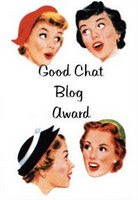When I was growing up, we took two newspapers every day: The Tampa Tribune and The Tampa Times. The Tribune was -- and is -- a morning paper; the Times was the evening paper. Around the time I was 8 or 9, we stopped taking the Times. No time to read it, my parents said. And the absence wasn't felt in the slightest.
Still the Times continued to publish into the 80s, when it died the death of an afternoon newspaper.
It was a similar story in newsrooms across the nation. People had changed. TV was to blame mostly, I suppose. People got their news and entertainment from the little boxes in their living rooms.
Some PM newspapers formed an alliance with the AMs to create a 24-hour news cycle. But it was too little too late really.
In the 70s, I approximate, news corporations started to take over newspapers. What had been mom-and-pop operations became slick corporate products. One man, Al Neuharth, was a genius at this. Al Neuharth started as a reporter, I believe, on a paper in upstate New York. But he had a genius for business and created the corporate Goliath Gannett Inc. He started buying up small and medium-sized papers across the country in places such as Coffeyville, Kansas, Fort Myers, Florida, and El Paso, Texas. Not exactly full of bright lights and big streets. What these small markets had, though, was a captive audience.
Neuharth wasn't satisfied with his empire of tiny papers. He wanted to create a newspaper for the nation. Thus, USA Today was born. Neuharth cannibalized his newsrooms in the smaller markets for the staff of USA Today, and the newspapers had to carry the salaries of these people for some time. USA Today was mocked as McPaper by serious journalists. Yet, today it thrives.
Somewhere in the 90s, Neuharth remarried, started a new family and passed the reins onto other more ambitious corporate guys. They now wanted quality, not quantity, and decided to buy it. They bought the Detroit Free-Press and the San Jose Mercury News, among others. But quality requires money. The 90s were perhaps the start of the beginning of the end for newspapers. Budgets were squeezed to maintain the bottom line. Gannett was very, very good at maintaining the bottom line and rewarded their investors many times over. But I believe this squeezing mentality is where Gannett and other corporate news organisations got it wrong. News coverage shrank and editorial space was limited as ad revenues started to dry up. Quality was sacrificed. Readers noticed.
Now in the noughties newspapers are dying or moving online. There is a great hue and cry across the world, mostly, it seems, from journalists or ex-journalists. Where did this decline begin? I think it goes back to the 60s and 70s. Changes in lifestyle and changes in ownership. Corporate greed over corporate good. The internet has just hastened the decline and fall of the media empires.
Where will it all end? I don't know that answer. Do you?
Tuesday, 24 March 2009
Subscribe to:
Post Comments (Atom)
















10 comments:
No, but I'm looking at the headline of The Reader newspaper in Chicago which says - "What's black and white and dead all over? - Notes on journalism's past, present and future prompted in part by a meeting held recently in Chicago". Bit of a long-winded title if you ask me, but I'm planning to read the piece.
I work for the media and the answer is, the answer is ....
the answer is .......
er ............
I think a good story these days is few and far between. Papers will sell, but only if the public are interested in the fodder.
CJ xx
Well, it's a bit of a long article, and the writer (Whet Moser) doesn't really blame anyone, except perhaps for the whole industry for not keeping up with the times. He talks about bloggers, and about people writing for free, but also talks a lot about Search Engine Optimization and fair use.
You can read it at www.chicagoreader.com. It's the lead story this week.
For years I read a daily paper almost cover to cover, well except the business and sport.
But in recent years it became just a Sunday paper that would take me days to read and now it's a rare event to but a paper.
But I do listen to 'today' in the morning and watch channel 4 news every evening as I'm still a news junkie.
For me I blame blogging for filling that space.
xx
I began working for newspapers in the early 90s, and I can attest to the fact that it has been a long, drawn out death that would have continued to drag on, even without the internet.
While I am a fan of finding hundreds of news sites online, there has to be some model where smart, hardworking people are compensated in some way to stay in the newsgathering business, whether it is online or in print.
I know as a traveler, especially when I was in Africa for two years, the online newspapers were invaluable to me - I think it may be that we end with only newspapers in the form of online issues. Sigh, I'm not happy about it and I'm a total geek.
So many readers and viewers go to the internet for their news. I think we will keep seeing an increase in readership with online newspapers.
Congrats on POTD!
Expatmum: I'll read the piece too.
David: Yeah, I know. Words escape us.
CJ: I think there are so many claims to people's time now, both work and leisure, that newspapers come bottom of the list for many.
Fire Byrd: You're not alone. In fact, I'd say you're getting to be in the majority. It's the time issue as much as anything. And reading newspapers is lonely but blogging isn't.
endangered coffee (we could be twins): I wonder if there won't be a movement back to weeklies.
lady m: What about what I wrote above? You could get your daily fix from websites and a weekly (Sunday?) paper with more indepth news and features.
Cheffie-mom: Yes, I think you're right. What's POTD?
most of my newspaper time was with weeklies, and they seemed to hold the market better and longer than dailies, but I think the online classified market is starting to hurt them as much as the dailies.
p.s.
I always appreciate a good "coffee" blog
Post a Comment